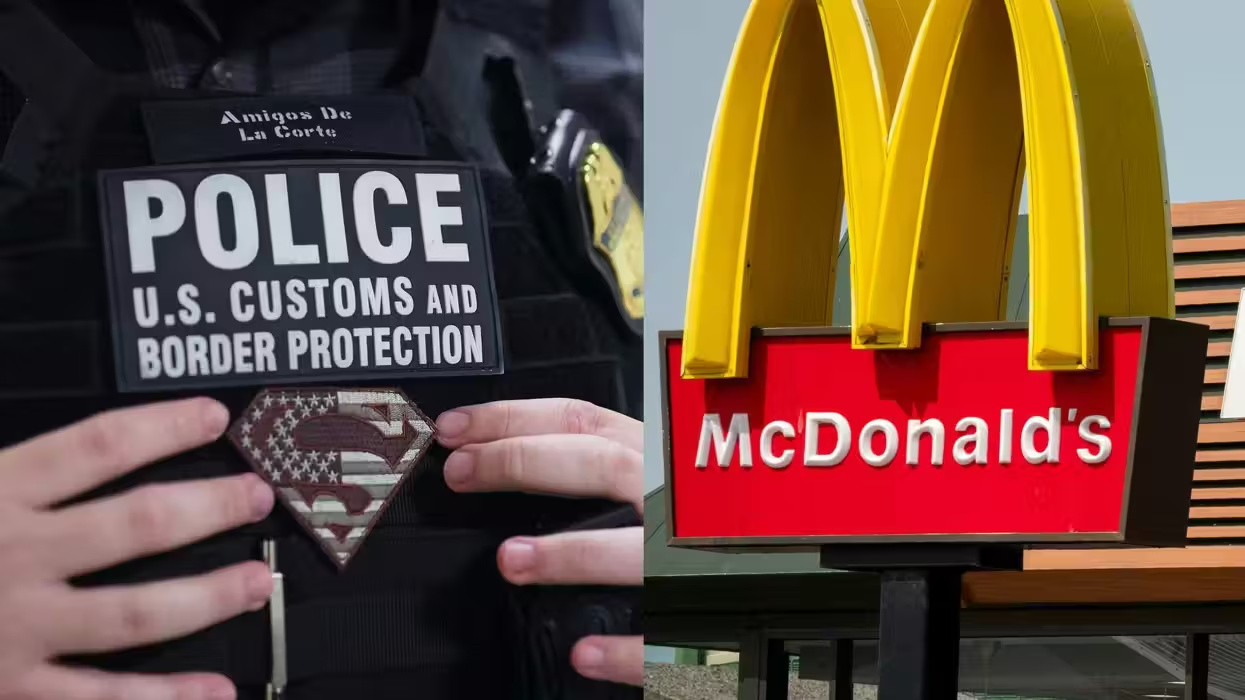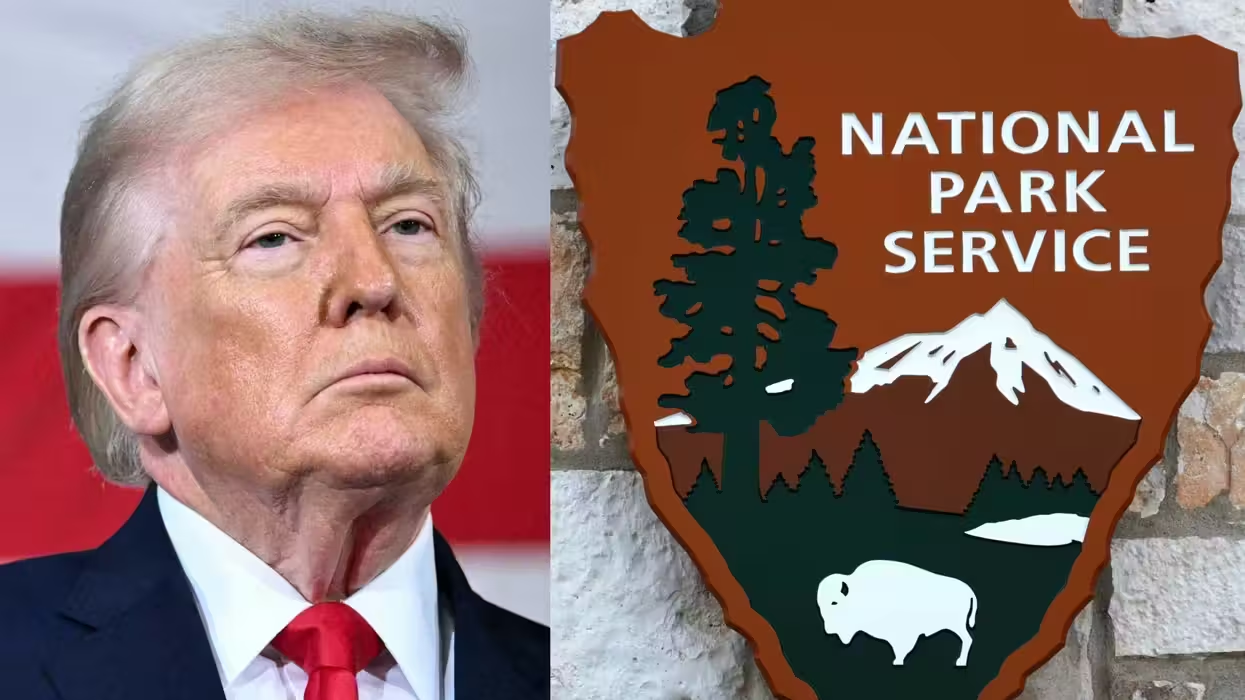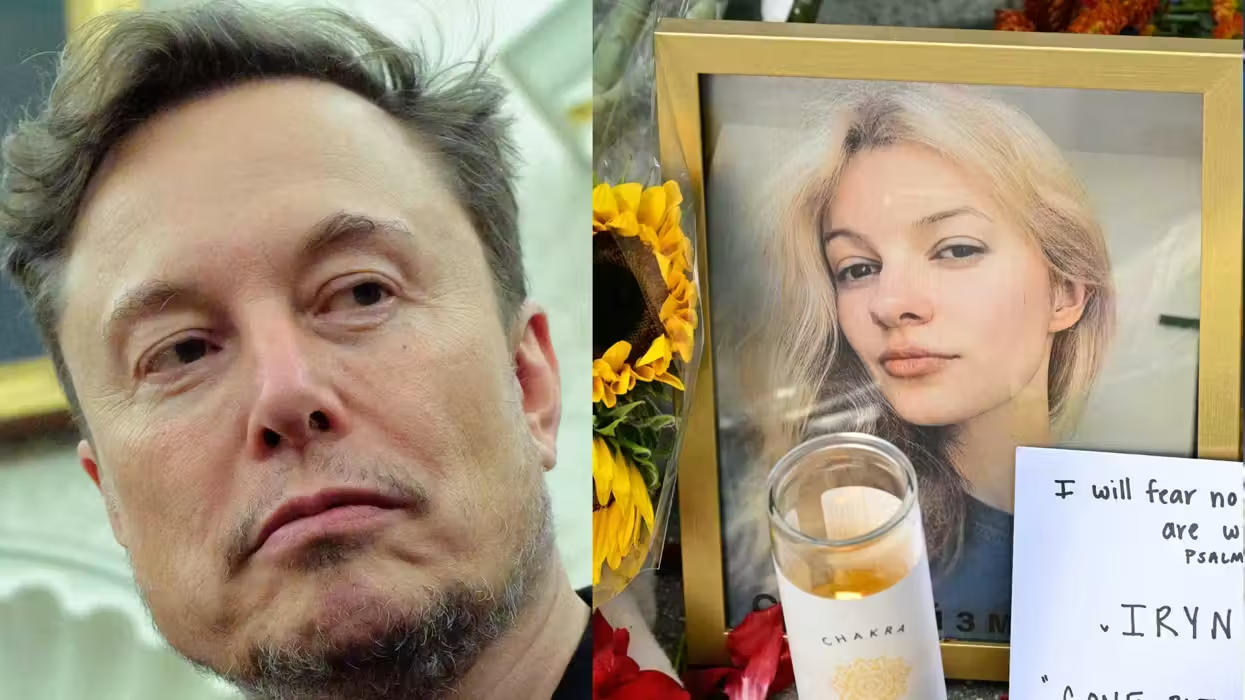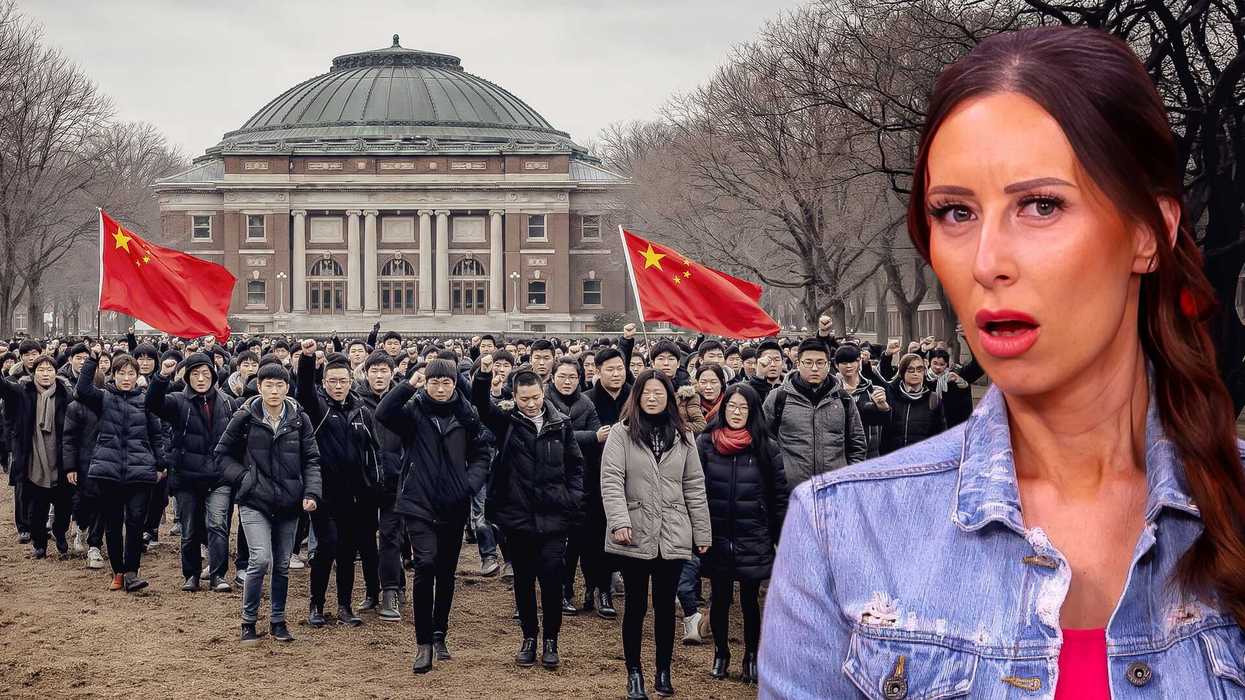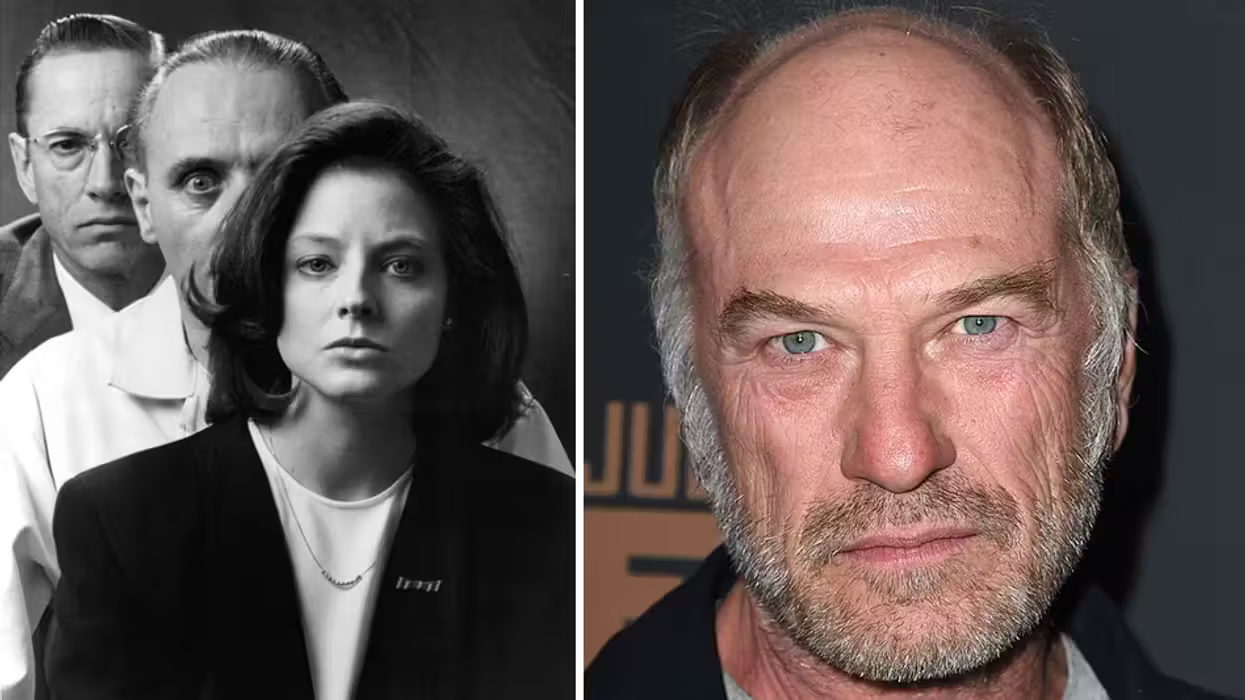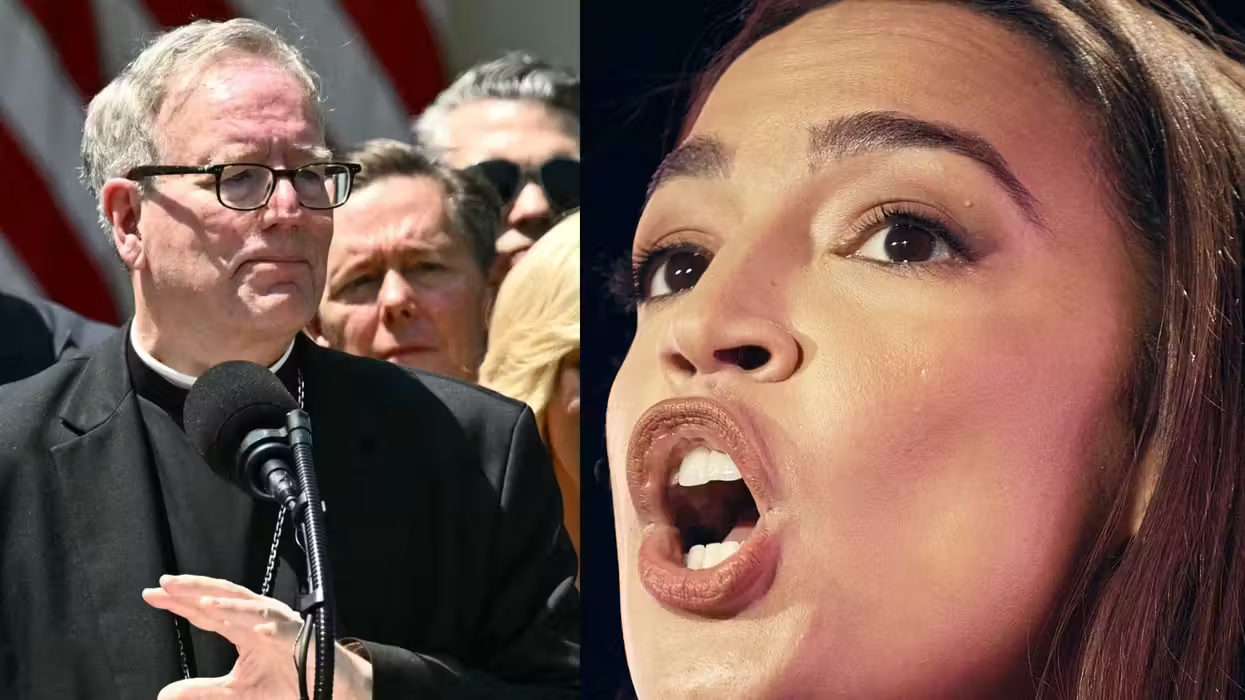This may very well be the biggest civil rights battle — at least internationally — unfolding in real time unbeknownst to most of the world.
For months, India's "untouchables," known formally as Dalits, have been revolting against the centuries-old caste system, a religious order that has determined individuals' lot in life and has prevented them from ever escaping it. Dalits gathering in the thousands have been holding "beef festivals" as a sign of protest, given cows are sacred in Hindu culture, along with blocking roadways and burning busses.
And now it seems the country may finally be on the precipice of change.
 Indian Dalit supporters take a pledge not to move or skin dead cattle during the Dalit Asmita Yatra rally in Valthera village in Dholka Taluka. Indian supporters and members of the Dalit community are taking part in the Dalit Asmita Yatra, a march from Ahmedabad to the town of Una to protest an attack on members of the Dalit community there. Violent protests erupted in recent weeks after video footage emerged of an attack on four Dalit villagers who were taking a dead cow to be skinned. (Sam Panthaky/AFP/Getty Images)
Indian Dalit supporters take a pledge not to move or skin dead cattle during the Dalit Asmita Yatra rally in Valthera village in Dholka Taluka. Indian supporters and members of the Dalit community are taking part in the Dalit Asmita Yatra, a march from Ahmedabad to the town of Una to protest an attack on members of the Dalit community there. Violent protests erupted in recent weeks after video footage emerged of an attack on four Dalit villagers who were taking a dead cow to be skinned. (Sam Panthaky/AFP/Getty Images)
Indian Prime Minister Narendra Modi, speaking to CNN-News18's Rahul Joshi in an interview to air Friday, condemned the oppressive caste system, saying it has "no place" in "civilized society."
"This is a social problem, which is deeply rooted," Modi said. "Politics over social imbalances is a disservice to society. To all those who have faced injustice for generations, today the [Bharatiya Janata Party] has a sizeable presence of tribal [members of parliament] and [members of the legislative assembly]."
This is a particularly poignant development because the BJP, of which Modi is a part, is a fundamentalist Hindu party. The prime minister noted the historicity — and the controversy — of his embrace of the lower-caste population, specifically the Dalits, during his discussion with CNN-News18.
Following the 125th anniversary celebration of Dr. B. R. Ambedkar, the Dalit author of India's constitution, Modi told Joshi that many were concerned over "the thought that Modi is a devotee of Ambedkar."
"Self-appointed guardians are trying to create tension, they didn't like that Modi is with Dalits and devotes himself to tribals. I'm devoted to the development of all Dalits — the oppressed, under-privileged and the deprived," he said. "Those who use this as an obstruction to their politics, those who have fed this country with the poison of caste divide, have destroyed the country."
"We must go forward with a purpose," he added. "Are these incidents fitting of a civilized society?"
The Rev. Dr. Joseph D’Souza, moderating bishop of the Good Shepherd Church and Associated Ministries of India and president of the All India Christian Council, described the caste-based-discrimination system as "the single most significant civil rights issue in the world, and maybe in world history."
"Today, Prime Minister Modi went where no other prime minister has gone before," D'Souza said of Modi's comments in a press release Friday. "He condemned the system which has disenfranchised hundred of millions of Indians for centuries."
The bishop, who last month penned an editorial about the issue at TheBlaze, said Modi's comments reminded him of Ambedkar because of his "courage to criticize members of his own party and to acknowledge the destructive effects of caste on Indian society was courageous, important, and significant."
 Indian members of the Dalit caste community take a pledge not to skin cattle during a protest rally against an attack on Dalit caste members in the Gujarat town of Una, in Ahmedabad on July 31, 2016. (Sam Panthaky/AFP/Getty Images)
Indian members of the Dalit caste community take a pledge not to skin cattle during a protest rally against an attack on Dalit caste members in the Gujarat town of Una, in Ahmedabad on July 31, 2016. (Sam Panthaky/AFP/Getty Images)
While the U.S. is embroiled in an intense presidential election and Europe is facing its own immigration crisis, it seems, at least in D'Souza's view, a new "Abraham Lincoln for India" may be rising up.
"While there can be no 'end of caste' in India without massive social reform, today — perhaps for the first time in my lifetime — I actually believe that there could be a casteless India," D'Souza said. "In fact, I pray for and imagine an India where there are both equal rights and equal opportunity for all Indians regardless of the fortune of their birth."
The revolts from Dalits aren't cropping up without reason. According to local reports, four youths were brutally flogged for skinning a cow earlier this summer. In another incident, Mohammad Aklaq was hanged by a violent mob of Hindu fundamentalists when beef was discovered in his home.
In yet another case, a Dalit mother and father were hacked to death for a 15-rupee debt, which translates to roughly 22 cents of a dollar.
But for Dalits, this is the viscous cycle they are trapped in. According to the dictates of the caste system, the "untouchables" are ordered from birth to dispose of the bodies of dead animals (doing so is considered "dehumanizing"). Consequently, in order to earn small amounts of money, the Dalits will skin the cows to sell the leather to tanneries.
If they are caught doing so, they are often punished violently by extremists. And now, the anger is reaching a boiling point, and the caste system is teetering — maybe for the first time — toward collapse.
"Modi is right: caste is a poison that threatens to destroy India," D'Souza said. "The Dalit uprising has spoken to our conscience, and has granted us an opportunity to correct centuries of wrong and to show the world we are not only a great nation, but a good nation."
—
Follow the author of this story on Twitter:

 Indian Dalit supporters take a pledge not to move or skin dead cattle during the Dalit Asmita Yatra rally in Valthera village in Dholka Taluka. Indian supporters and members of the Dalit community are taking part in the Dalit Asmita Yatra, a march from Ahmedabad to the town of Una to protest an attack on members of the Dalit community there. Violent protests erupted in recent weeks after video footage emerged of an attack on four Dalit villagers who were taking a dead cow to be skinned. (Sam Panthaky/AFP/Getty Images)
Indian Dalit supporters take a pledge not to move or skin dead cattle during the Dalit Asmita Yatra rally in Valthera village in Dholka Taluka. Indian supporters and members of the Dalit community are taking part in the Dalit Asmita Yatra, a march from Ahmedabad to the town of Una to protest an attack on members of the Dalit community there. Violent protests erupted in recent weeks after video footage emerged of an attack on four Dalit villagers who were taking a dead cow to be skinned. (Sam Panthaky/AFP/Getty Images)
 Indian members of the Dalit caste community take a pledge not to skin cattle during a protest rally against an attack on Dalit caste members in the Gujarat town of Una, in Ahmedabad on July 31, 2016. (Sam Panthaky/AFP/Getty Images)
Indian members of the Dalit caste community take a pledge not to skin cattle during a protest rally against an attack on Dalit caste members in the Gujarat town of Una, in Ahmedabad on July 31, 2016. (Sam Panthaky/AFP/Getty Images)

